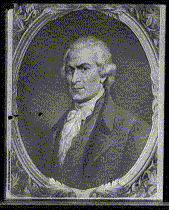Posted on May 18, 2006
Wrongo, Sandy Baby
Independence is not omnipotence
by
Daniel Clark
In an April 16th interview with CBS News, former Supreme Court Justice Sandra Day O'Connor complained about "threats for retribution against judges for certain decisions" by state and federal legislators. "I mean, that's contrary to every notion of judicial independence that we know, from the time that the Constitution was adopted."

Paraphrasing the kinds of threats she'd heard from congressmen, she said, "Let's deprive them [the Supreme Court] of jurisdiction over certain kinds of cases." Such a suggestion may offend Justice O'Connor, but it does not conflict with the Constitution, which specifically assigns that power to the legislative branch.
The second clause of Article III Section 2 says, "In all Cases affecting Ambassadors, other public Ministers and Consuls, and those in which a State shall be Party, the supreme Court shall have original Jurisdiction. In all the other Cases before mentioned, the supreme Court shall have appellate Jurisdiction, both as to Law and Fact, with such Exceptions, and under such Regulations as the Congress shall make." (emphasis added)

So Congress does have the authority to make exceptions to the cases over which the Supreme Court has jurisdiction. But doesn't that violate the principle of "judicial independence"? Not where the Constitution is concerned, because that phrase appears nowhere in the document.
While O'Connor was reflecting on our historic notions of judicial independence, the one that was held by Alexander Hamilton must have escaped her notice. In Federalist 81, Hamilton argued that the Supreme Court should be a "separate and independent body," in contrast to the British system, in which the Supreme Court is contained within the House of Lords. What he meant by "independent" in this context was that the judiciary should be its own separate branch of government, not that it should be immune to constitutional checks and balances.
In fact, Hamilton suggested remedies for judicial activism that today's champions of "judicial independence" would consider dangerous and extreme. In that same essay, he argued that the judiciary could never get away with encroaching on legislative power, because of the retaliatory measures made available to Congress.
"This may be inferred with certainty," he continued, "from the general nature of the judicial power ... from its comparative weakness, and from its total incapacity to support its usurpations by force. And the inference is greatly fortified by the consideration of the important constitutional check which the power of instituting impeachments in one part of the legislative body, and of determining upon them in the other, would give to that body upon the members of the judicial department. There never can be danger that the judges, by a series of deliberate usurpations on the authority of the legislature, would hazard the united resentment of the body intrusted with it, while this body was possessed of the means of punishing their presumption, by degrading them from their stations."

Tragically, these assurances have turned out to be false, for the simple reason that the legislature has refused to guard its power by availing itself of the tools that Hamilton prescribed. His theory was that any attempt by the judiciary to create law would send the lawmakers into a righteous fit of jealousy. Disappointingly, many of our congressional representatives have reacted instead as if they were relieved to have the legislative burden lifted from their shoulders. As a result, judicial activists like O'Connor have only become bolder over the years, to the point where they now deny that Congress has the power to affect them at all.
When Rep. Tom DeLay (R, Texas) echoed Hamilton with his opinion that judges who assume the power to legislate should be subject to impeachment, Justice O'Connor responded by blaming his rhetoric for two violent attacks against judges. Neither of the attackers was motivated by sympathy with DeLay's remarks (one was a disgruntled plaintiff, and the other a defendant in a rape trial), but never mind. O'Connor found it necessary to malign the congressman in this way, as a means of protecting "judicial independence."

The reason for O'Connor's defensiveness is clear to anybody who is familiar with her record. It was she who, with Justices Souter and Kennedy, jointly issued the majority opinion in the 1992 Planned Parenthood v. Casey decision. In it, they held that legal abortion should continue to be imposed on all fifty states because, "At the heart of liberty is the right to define one's own concept of existence, of meaning, of the universe, and of the mystery of human life." It's hard to imagine a greater usurpation than that. If applied consistently, it would render all criminal legislation moot, by granting transgressors the power to simply redefine the facts.
In 2003, O'Connor wrote the majority opinion in Grutter v. Bollinger, in which she decided, dubiously, that a race-based law school admissions policy did not violate the equal protection clause of the Fourteenth Amendment. She did allow for the possibility, however, that it might cease to be constitutional after 25 more years had passed. Perhaps some antibodies in the "living Constitution" will have attacked it by then.
When O'Connor refers to judicial independence, what she really means is independence from checks and balances, independence from the written law, and independence from virtually any form of accountability.
If the judicial branch cannot be punished for seizing legislative power, then this so-called "judicial independence" actually amounts to a repudiation of Hamilton's concept of a "separate and independent" Supreme Court. The two bodies cannot be separate if the judiciary subsumes the legislature, any more than if that situation were reversed.
Since the purpose of The Federalist Papers was to explain the virtues of the Constitution, one would hope that federal judges would heed the words of its authors. But then, why would they? The Supreme Court has a long history of rejecting the language of the Constitution itself, in favor of the justices' own presumptions. There's no reason to expect another of our founding documents to be treated any more respectfully.
-- Daniel Clark is a Staff Writer for the New Media Alliance. The New Media Alliance is a non-profit (501c3) national coalition of writers, journalists and grass-roots media outlets.
The Shinbone: The Frontier of the Free Press
Mailbag . Issue Index . Politimals